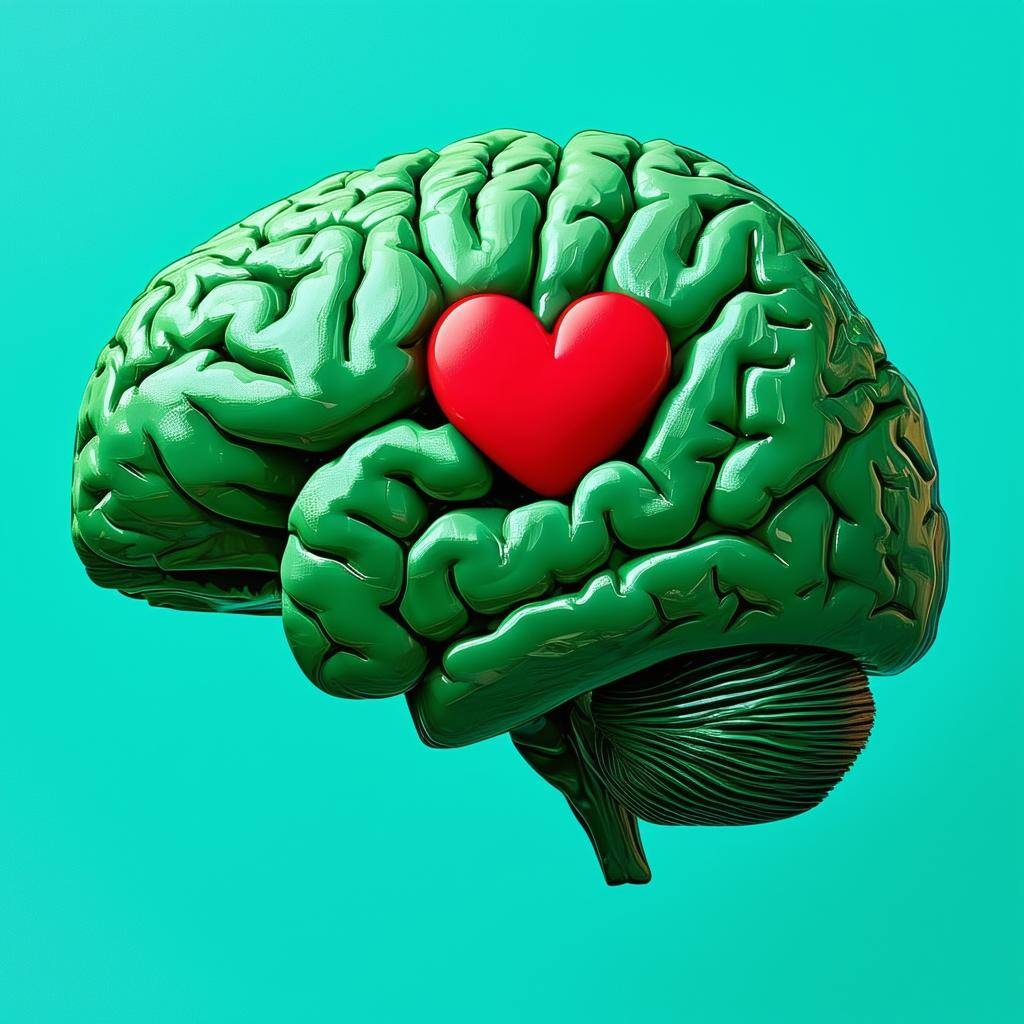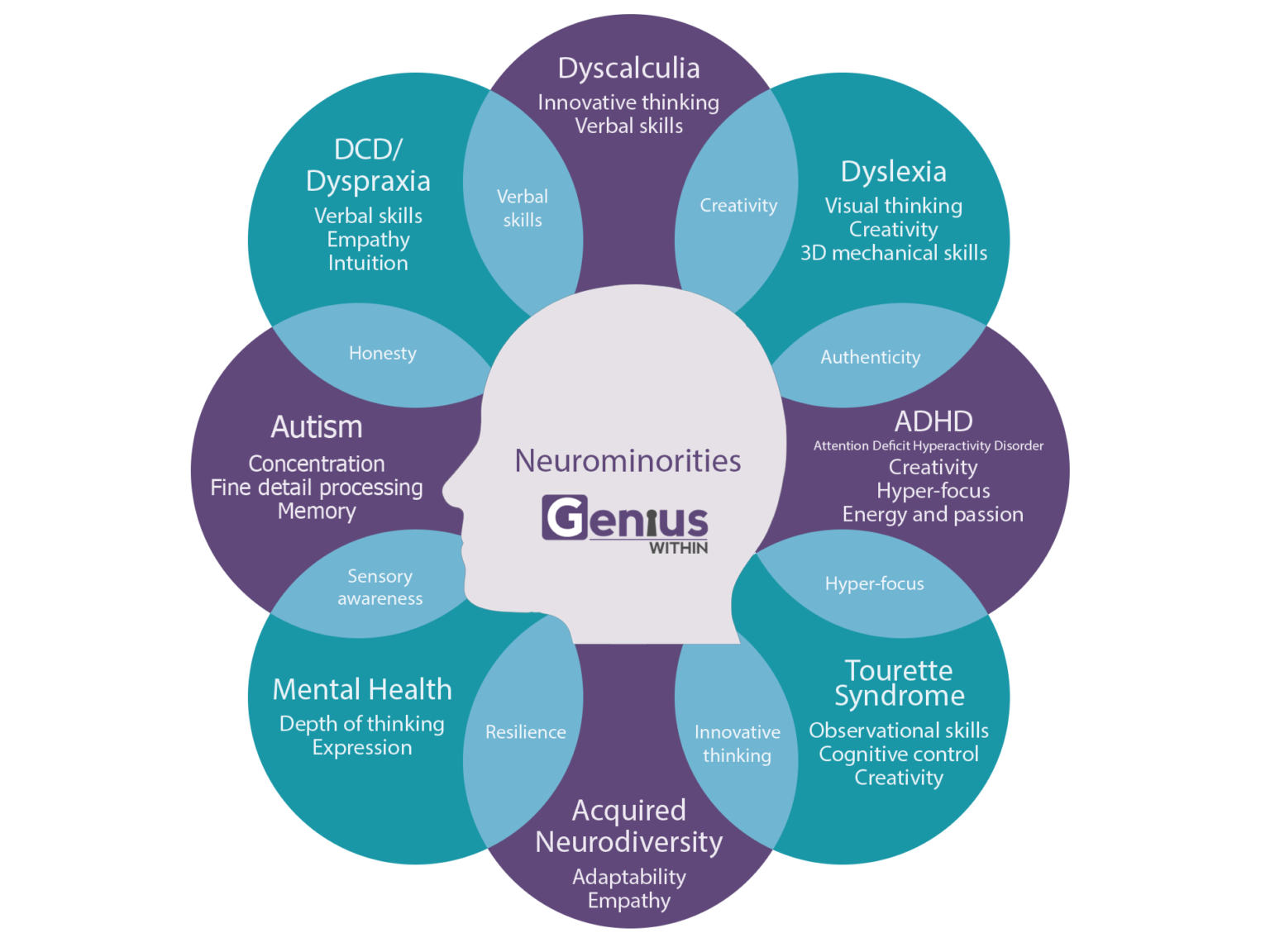Why Am I so Nervous?
I’ve been called "nervous" for as long as I can remember. Even as a child, the label stuck. Looking back, I’d venture to guess that the large doses...
7 min read
KD HOLMES, LPC, EMDR CERTIFIED, BTTI TRAINED
:
Nov 29, 2024 3:00:53 PM

After 48 years and countless therapists, I've come to challenge the traditional narratives surrounding mental health. Therapy often begins with unpacking feelings and delving into trauma, as if these alone hold the key to healing. And while I deeply value the power of trauma work-like DBR, which miraculously helped me shed nearly all my anxiety and feelings of inadequacy-it’s only part of the story.
Our mental health, I’ve learned, is not just about the emotions we carry or the history we relive. It’s about understanding the intricate wiring of our brains. Much like deciphering a complex map, grasping how our brains and bodies process and respond allows us to see the full scope of who we are. Over the past two decades of helping others-and through the lens of my therapy-I’ve seen that change requires more than just tracing the threads of our past.
It’s about asking deeper questions: How do we naturally move through the world? What is the rhythm of our neurological makeup? By starting here, we can craft solutions that truly fit the person we are, not the person we think we should be. Instead of only working backward from our pain, perhaps the answer lies in leaning forward-exploring the natural currents of our brain and body to find a way that feels like home.
At a young age, my family called me "nervous." Armed with a bottle of Coke and Hershey's Kisses, I'd race around the living room, fueled by joy. I thrived on that feeling, even then. But here's where it blurred-hyperactive or anxious? ADHD, perhaps. Yet, no one diagnosed me, and therapy sessions never addressed how my mind works. Psychiatrists often questioned if I was manic. Truth is, I don't "come down" because this is how my ADHD manifests. I used to consider myself a dopamine junkie, driven by anxiety that once fueled my ADHD. However, after working extensively on my anxiety, its influence has diminished. My dopamine-driven choices may be less intense, yet they remain ever-present. I enjoy music in the morning, whether during bike rides, walks, or driving with it blasting in my ears. Constant achievement doesn't define my life, but I still relish the sense of accomplishment when I complete a task or solve a problem. While I still get excited around others, in therapy sessions, my focus remains on my clients. I've shared with my clients that I have ADHD, and some are surprised by this revelation. It's interesting how my ADHD manifests.
Understanding how our bodies function can be a revelation. It is a place of acceptance and compassion. Consider your mental health problems through health issues, persistent burnout, and neurological differences to see how your body influences your anxiety and depression. Neurological differences include learning differences, ADHD, Autism, OCD, Sensory Processing variations, and many others. Our bodies are frequently overlooked or excluded when trying to comprehend how symptoms arise and should be treated.
In this blog, I aim to unpack these basics, offering a new lens through which to view mental health-a field often oversimplified and misunderstood. Mental health is not just about feelings and trauma; it encompasses all the fundamental ways we exist and interact with the world around us. From our thoughts, emotions, behaviors, and relationships to neurology like ADHD, Autism, and medical diagnosis, every aspect plays a crucial role. When these are overlooked, we unwittingly limit our client's ability to improve and thrive. By gaining a deeper understanding of all these elements, we provide more comprehensive support and foster a more nuanced appreciation of mental well-being.
Breaking down ADHD, autism, sensory differences, learning, and processing variations in therapy requires a curious informed approach. Each of these differences has unique characteristics and challenges, necessitating personalized strategies. Your therapist must consider neurological differences, strengths, and preferences to effectively address these variations. By doing so, we can create tailored interventions that foster positive outcomes and enhance your overall therapeutic experience.
Do you know what having ADHD means and how it affects your life and mental health? ADHD, or Attention Deficit/Hyperactivity Disorder, is a neurodevelopmental disorder that impacts various aspects of daily life, including focus, organization, emotional regulation, and how your brain responds to environmental stimuli. Understanding its symptoms can help in managing challenges and leveraging your strengths.
Let's take me as an example. When I was young, I struggled with intense anger, defiance, and emotional regulation problems related to impulse control. These challenges made my teenage years particularly tumultuous, as I often found myself in conflict with authority figures (i.e., my father) and struggling to manage my emotions effectively. I managed to get it together in my 20s through therapy and support, but I continued to struggle with hyperactivity and impulsive choices that wreaked havoc on my emotional well-being. These impulsive actions often led to feelings of regret, further complicating my stability.
Now let's imagine someone who is inattentive. Imagine constantly struggling to complete tasks, missing appointments, barely making it on time, and feeling overwhelmed by work responsibilities regularly. This ongoing struggle affects how you perceive yourself, leading to feelings of inadequacy. You might feel chronically overwhelmed, constantly procrastinating, and as an adult, you may find yourself repeatedly late in completing projects. This cycle can result in emotional meltdowns, further impacting your self-image. The accumulation of these experiences can lead to frustration, anxiety, and a continuous battle with self-doubt, making everyday life feel like a daunting challenge.
Let's consider the combined subtype of hyperactive and inattentive ADHD. You can engage successfully in tasks you are passionate about, driven by the desire to achieve that dopamine high. However, your happiness is often dictated by the outcomes of these tasks. As a result, you experience a rollercoaster of emotional highs and lows based on how you perceive these outcomes. Despite your efforts, you find yourself chronically late to appointments and struggling to complete work tasks on time. You've been written up at work for these issues, but you just can't seem to get it together like everyone else seems to. This often leads to a cycle of self-doubt, where you find yourself questioning, "What is wrong with me?" and blaming yourself for being lazy, even though you are trying your best to manage your responsibilities. It can be a challenging and frustrating experience, which adds to the emotional burden you carry.
Do you know what Autism means and how it affects your life and mental health? Autism is characterized by differences in social interaction, thinking, intense interests, and in some cases sensory differences. Understanding your unique neurotype profile can help manage challenges and leverage your strengths. With tailored strategies and support, Autistics can navigate daily life more effectively and embrace their differences.
Now Imagine you are an adult who has felt othered or different for most of your life. Chronically feeling misunderstood and overwhelmed has driven you to seek therapy once again. You're often described by others as a high achiever, but this recognition holds little meaning for you. While others celebrate your accomplishments, you don't experience happiness in the same way. While succeeding in the traditional sense at work, you are left spent and unable to function at home. Often, you wonder what's wrong with you, questioning why you can't feel the joy that seems to come so easily to others and why you seem to be so much more worn out than your peers. Your office environment feels too bright and loud, making it difficult to connect with your coworkers. It's not that you don't want to connect, but you're afraid to reveal your true self because it's so different. Small talk isn't your thing, but you love having deep conversations about shared interests. However, you love it so much that people often appear bored when you're talking passionately about something you cherish. Every day, you return home feeling exhausted, overwhelmed, and sometimes experiencing a meltdown. Your therapist is convinced there's a trauma history, but you can't quite remember any specific event that fits the description. This uncertainty adds another layer of complexity to your already intricate emotional landscape, leaving you searching for answers and longing for that happiness you have observed.
Are you aware of how your sensory differences affect your mental health and emotional well-being? Sensory Processing Disorder (SPD) is a condition affecting the way the brain interprets and responds to sensory information. Imagine your world where sounds, colors, and textures, each holding a sensory intensity that feels too much. For some, this is overwhelming. This is the reality for those with SPD. It can manifest as discomfort with certain textures or hypersensitivity to sounds or lights, impacting daily experiences, emotions, and mental health. During therapy sessions, closing your eyes might evoke a sense of being disembodied, and disconnected from reality, which could indicate a vestibular or proprioception issue.
Medication and therapy have done very little to alleviate these symptoms. You find solace in being alone in a quiet room with the lights out, where the world feels a little more manageable, but your therapist sees it as a sign of isolation. You enjoy taking naps and typically sleep around 10 hours a night, which brings you some peace; however, your therapist labels it as hypersomnia, implying something is amiss. After a long day of work, you sometimes encounter episodes of suicidal ideation, which can feel overwhelming and frightening.
Yet, as you're reading these words, you realize that no one has ever mentioned this possibility to you. Despite years of therapy, no one has suggested that sensory processing issues could be contributing to your mental health. Understanding this could be a key to unlocking new avenues for relief and self-awareness, offering paths to manage your unique sensory world.
Reflecting on my years in therapy, it’s striking how my ADHD went unnoticed. It wasn’t until I delved into the deep, uncharted waters of trauma work that I began to shed the shame tied to my ADHD. Discovering Neurodiversity Affirming Therapy brought clarity to a fragmented picture. The pain of being othered runs deep, a wound carved by a world that often pathologizes anything outside the bounds of neurotypicality. This isn’t just a personal struggle-it’s a global one. Neurodiversity Affirming Therapy seeks to address this, offering a compass for those navigating our mental health world.
Now, I’ve come to embrace my differences, viewing them as unique facets of my identity-some even as incredible strengths. It takes a hyperactive mind to thrive in roles as diverse as a therapist, teacher, and practice manager. The variety in my daily tasks fuels my mind, enriching not just my work but my entire life. Understanding these patterns has become the cornerstone of my mental health, highlighting the ongoing need for self-awareness and strategies for navigating life’s complexities.
But finding the right support can be difficult. Amid a sea of promises, it’s all too easy to be swayed by those who project confidence without substance. Those we turn to for guidance hold immense power over our growth, so it’s essential to choose wisely.
Choosing the right therapist is crucial. A therapist should be well-trained in what you are struggling with and their techniques should be evidence-based (backed by research) . Ask about their training, their experience, and their approach-just as you would inquire about a doctor’s qualifications. And remember, effective therapy isn’t always comfortable. Opening up often feels like stepping into the rain without an umbrella, but it’s through that vulnerability that change begins. It’s a process, not a destination-that takes courage and intention.
Remember if their approach doesn’t work after three to six months, explore other options. Have a conversation-your current therapist may help guide you to someone more aligned with your needs.
Lean into it. Own your mental health.


I’ve been called "nervous" for as long as I can remember. Even as a child, the label stuck. Looking back, I’d venture to guess that the large doses...

Among the plethora of new terms circulating on social media, one that currently stands out to me is Neurodiversity. This term has not only fostered...

Therapy is a space where people seek understanding, change, and clarity for diverse challenges. Often, these challenges come in the form of...